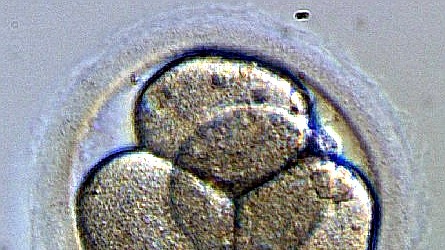A Russian biologist has told a journalist at Nature that he wants to create more gene-edited babies and will do it if he can win approval.
Who’s involved: Denis Rebrikov of the Pirogov Russian National Research Medical University in Moscow says he wants to repeat last year’s widely condemned experiment in China to create humans resistant to HIV. He believes he can do a better job.
Is this serious? Rebrikov isn’t known for his work with gene editing. A search of his publications mostly turns up reports on biomarkers of gum disease. However, last October he did author a report in which the gene-editing tool CRISPR was applied to human IVF embryos, one of just a dozen or so such experiments ever described.
What’s more, his coauthors included the director of a large Russian maternity clinic, the Kulakov National Medical Research Center for Obstetrics, Gynecology, and Perinatology in Moscow. Rebikov believes Russian rules on creating gene-modified babies are unclear and says that he plans to seek approval to carry out the procedure.
Tsk, tsk: Experts say it wouldn’t be responsible to make more CRISPR babies at this time. One reason is that it is hard to know what unexpected effects altering a baby’s genes will have. The gene the Russians want to delete from embryos, CCR5, doesn’t just protect against HIV. It appears to have potential effects on cognition and life span, too.
Yet some scientists will remain driven to genetically modify children, no matter what. “I think I’m crazy enough to do it,” Rebikov told Nature.
Sign up here to our daily newsletter The Download to get your dose of the latest must-read news from the world of emerging tech.

